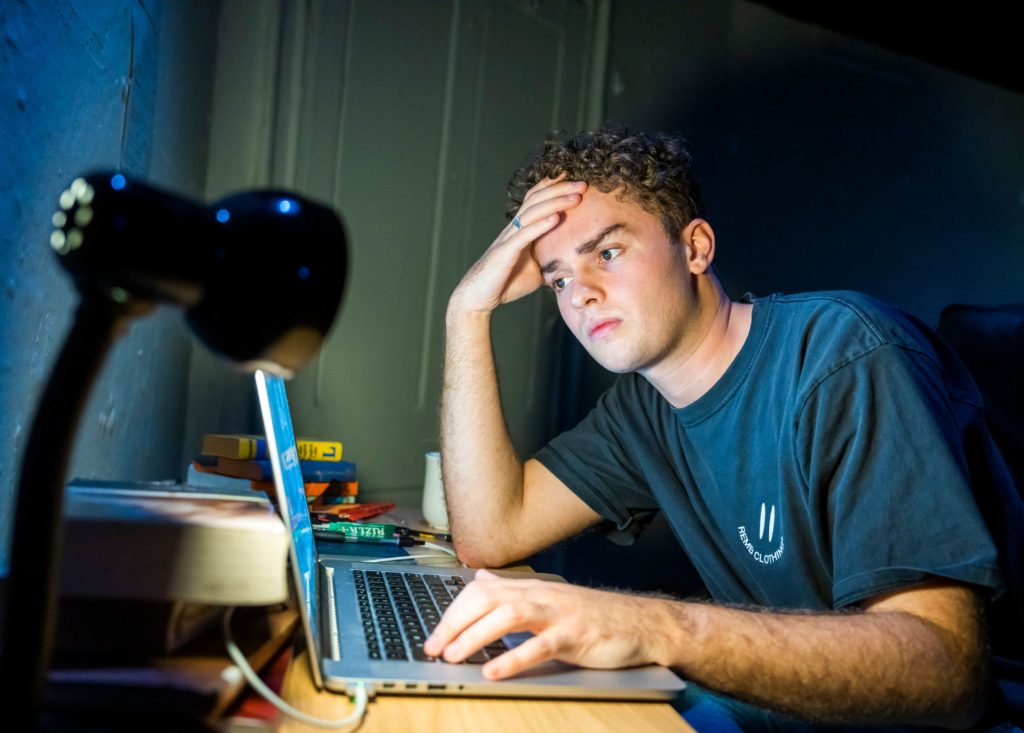
PHILIPPA Lawford’s debut play Ikaria opens its autumn tour at Theatre@41, Monkgate, York, on Saturday night.
When romance blossoms between two university students from different walks of life, the giddy excitement of first love initially preoccupies but then stifles the pair as they contend with their ultimate place in the world that lies ahead.
Exploring young love, set against the backdrop of university, this Tightrope Theatre production presents a nuanced look at mental health and the coexistence of love and self-destruction, ultimately illustrating how we can find salvation in someone else.
After taking a year out, Simon (played by James Wilbraham) has returned to university, determined to crack on with his finals and not to slip back into old, destructive habits.
First-year student Mia (Andrea Gatchalian) is embracing the explosive freedom of life away from home. While seemingly from contrasting worlds, the two easily slide into a relationship, spending every night together in Simon’s messy dorm room, staying up later and later, not going out, and skipping tutorials.
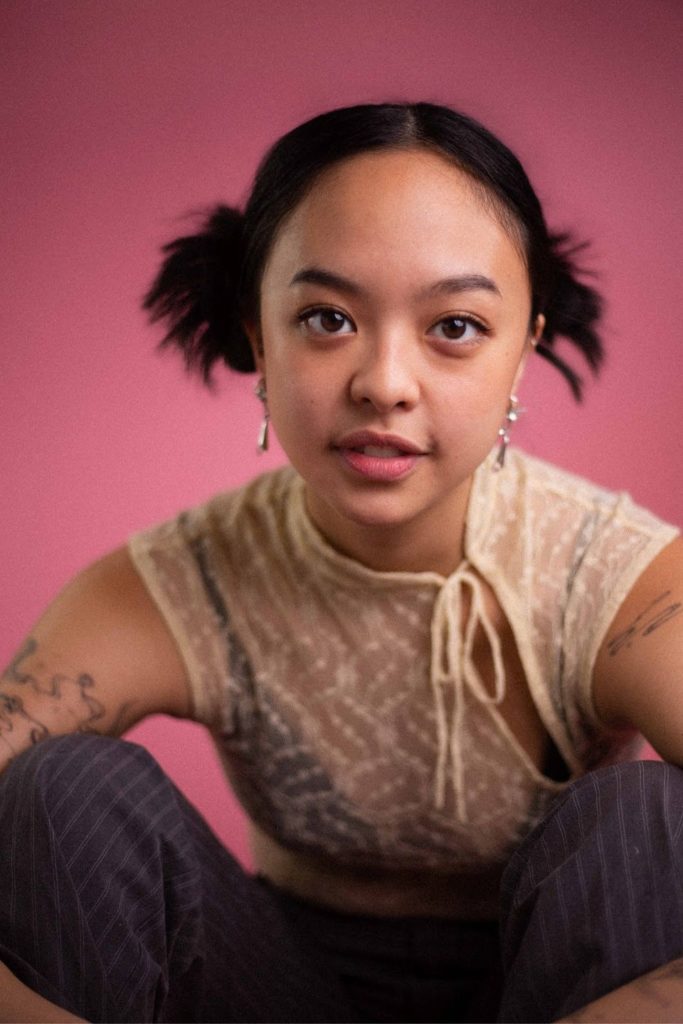
Swept up in a dizzying romance, Mia is initially happy to sink into Simon’s nocturnal habits, until she begins to question whether this makes her happy – and whether it makes Simon happy too. Where once they found solace from the pressures of the outside world in Simon’s bedroom, now that space begins to reflect the growing unrest infiltrating their relationship.
Drawing on Philippa’s own university experiences, Ikaria takes a heartfelt look at the gritty reality of loving and caring for somebody who cannot love and care for themselves.
“I was 24 when I wrote Ikaria, three years after leaving uni,” she says. “I’ve tried to be as accurate as possible about what it felt like to be a student – how exciting and romantic it felt, and also the dizzying fear of feeling like an adult for the first time, fully able to make all your own mistakes.
“It’s been wonderful working with such talented actors and with my fantastic associate director Izzy Parriss as we’ve built the detailed world of the play inside Simon’s bedroom.”
Ikaria begins its tour in York before visiting Mold, Stafford, Guildford, Belfast, Whitley Bay and London. Please note, the play carries trigger warnings of references to anxiety, depression, suicide, sexual assault and drug use, with strong language and depictions of self-harm.
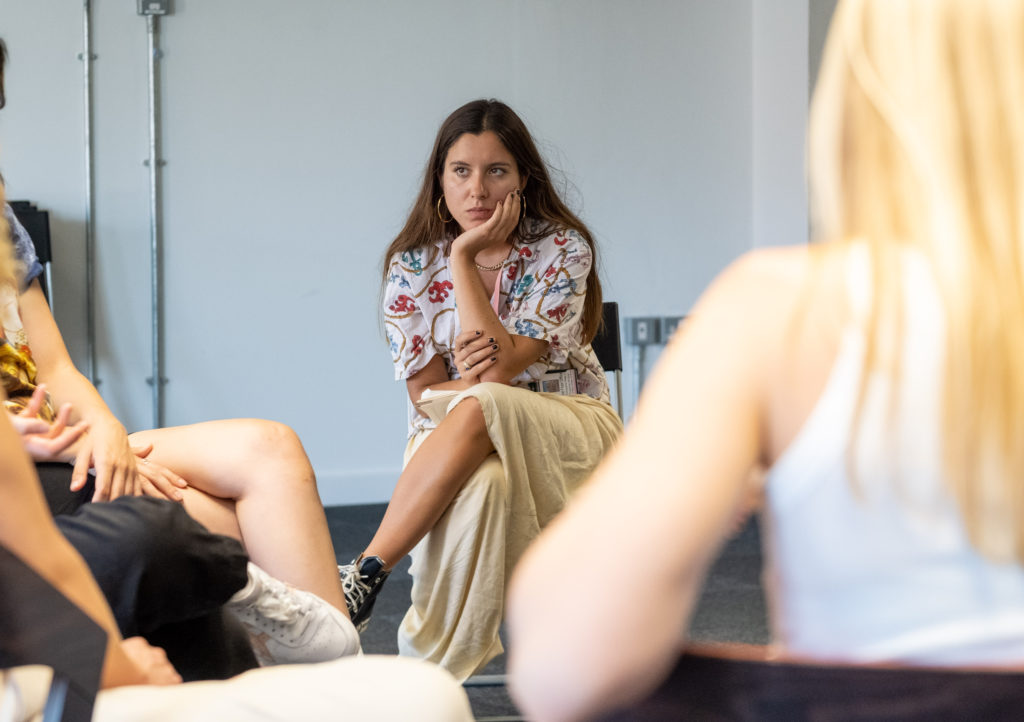
Here writer-director Philippa Lawford answers CharlesHutchPress’s questions on university life, young love, student pressures, self-destruction, Icarus and advice to her younger self.
Where, when and which subject did you study at university, and what were your experiences of young love in that bubble of a hothouse environment?
“I studied my undergrad degree in English Literature at Oxford. I graduated in 2019, right before the pandemic. I had some experiences of very intense (and fun) romantic relationships during this time.
“The freedom to have someone in my room whenever I wanted was totally new, and meant that itwas very possible to spend a huge amount of time with my first uni boyfriend. It was very exciting but there were areas in which it became a bit dysfunctional, as we spent all of our time together.”
How much did your own experiences or those around you at that time influence Ikaria?
“The play is entirely based on my experiences and the experiences of my friends. The plot is fictional, but only in the sense that I have cobbled together a number of true things that either happened to me or to people around me.
“I like writing in this way as it allows me to feel like what I’m creating is truthful. You don’t have to have had particularly sensational life experiences in order to do this – you just have to be honest and accurate, I think.”

There was a time when students would believe they knew everything and were indestructible. Not now. The pressure, the demands, the expectations, the impact of social media, Covid/post-Covid, the exorbitant fees, now collide to take their toll on mental health. What are your thoughts on this?
“I think mental health is a massive problem at universities and the support systems don’t seem to be coping. During my undergraduate degree, so many people had to take years out or drop out because of pressure and mental health problems. University throws young people in at the deep end and it can be so isolating.”
What do you learn at university beyond a degree course?
“I think I learnt what the uninhibited version of my life looks like. And then I had to learn to dial that back.”
Is university still a place for Ian Dury’s triptych of sex’n’drugs’n’rock’n’roll?
“Yes…but the academic workload I experienced was also very full-on, so the balance between the two lifestyles can be pretty challenging. I’m not very productive when I’m hungover.”

What is the relationship between love and self-destruction in that university world, one you describe in your play as “co-existence”?
“Self-destruction seems to be a dominant trait amongst high-achieving young people, probably as a natural release of internalised pressure. The people at my uni were very funny and very open about guilt and shame, which everyone seemed to feel, about work and deadlines.
“One thing I think is great about this generation is how comfortable they are expressing vulnerability. But being funny about your self-hatred doesn’t always negate the feeling.”
You say Simon and Mia come from “different backgrounds”. What is each character’s background; what subjects are they studying; what drew them together; what draws them apart?
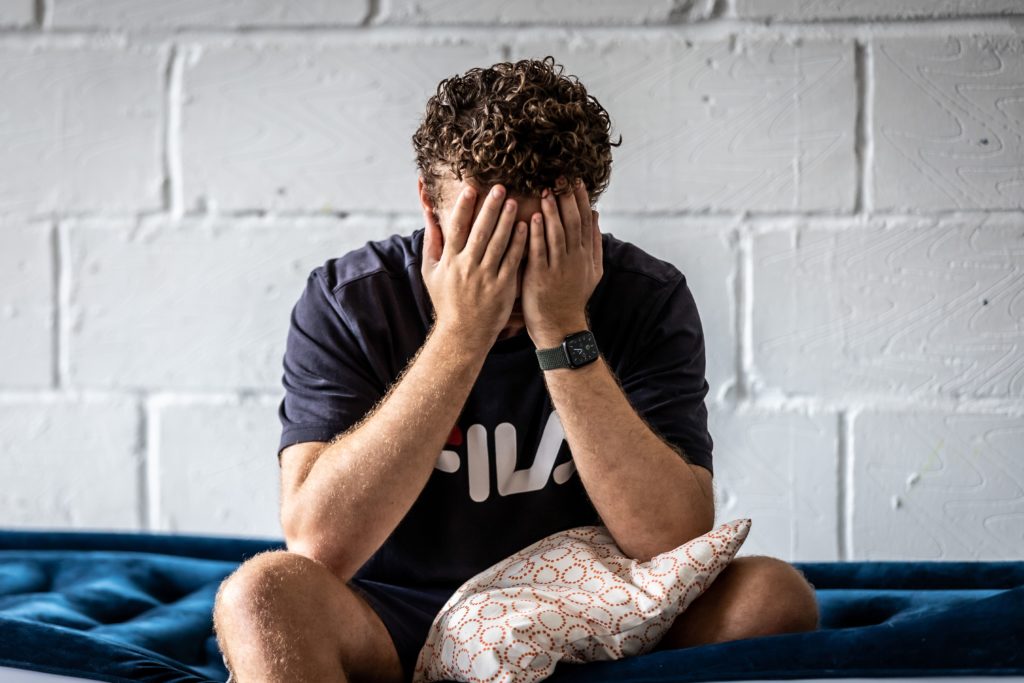
“Simon is very posh; he studies classics and he is in third year. Mia is from London and the first person in her family to go to uni. She studies English and does student journalism, and she’s in first year.
“They are drawn to each other’s sense of humour and in a sense they are magnetic opposites. They are charming and insecure and they have great chemistry. They’re fascinated by each other. They clash over their different approaches to life: Mia wants to get out into the world and soak up what it has to offer, and Simon wants to stay in his room.”
Which theatrical mask does Ikaria wear: tragedy or comedy or a blend of both?
A blend of both. We are laughing a lot in the rehearsal room, but there’s plenty of darkness (as you’ll be able to work out from the trigger warnings).
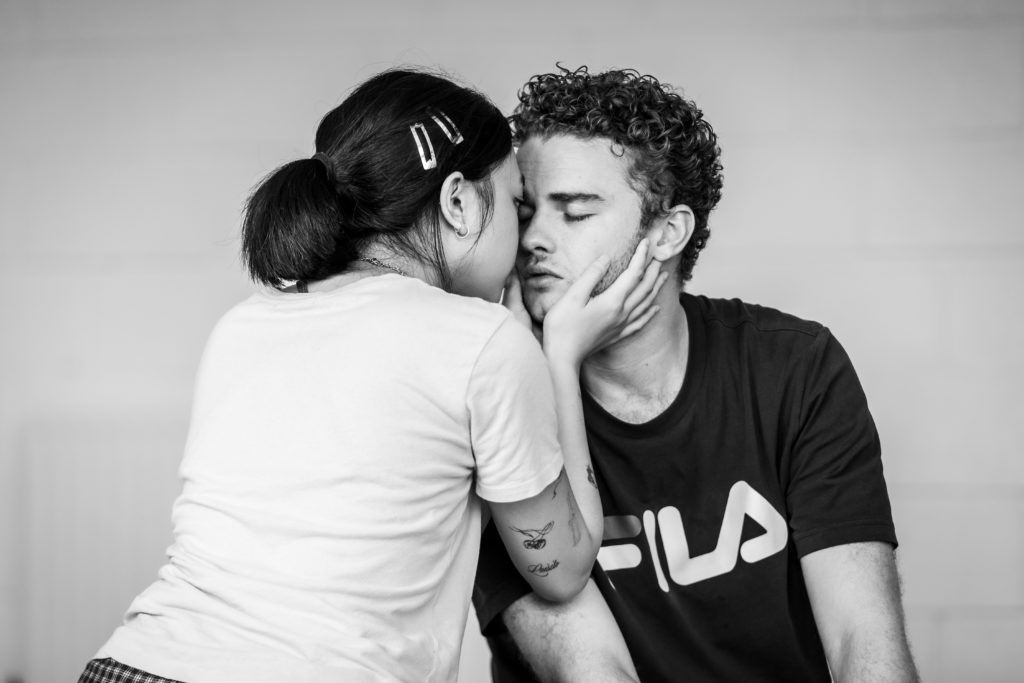
Why call the play Ikaria? A nod to Icarus, presumably?
“Yes. Ikaria is the Greek island where Icarus supposedly fell to earth when the wax glue of his wings melted. It’s also an island with a remarkably old population: people famously live into their hundreds. In this play, it’s the name of the university halls.”
If you could give your pre-university self a piece of advice, what would it be?
“People gave me plenty of good advice at the time which I didn’t pay enough attention to, so I doubt I’d have listened.”
Tightrope Theatre in Ikaria, Theatre@41, Monkgate, York, Saturday, 7.30pm. Age guidance: 14 plus. Box office:
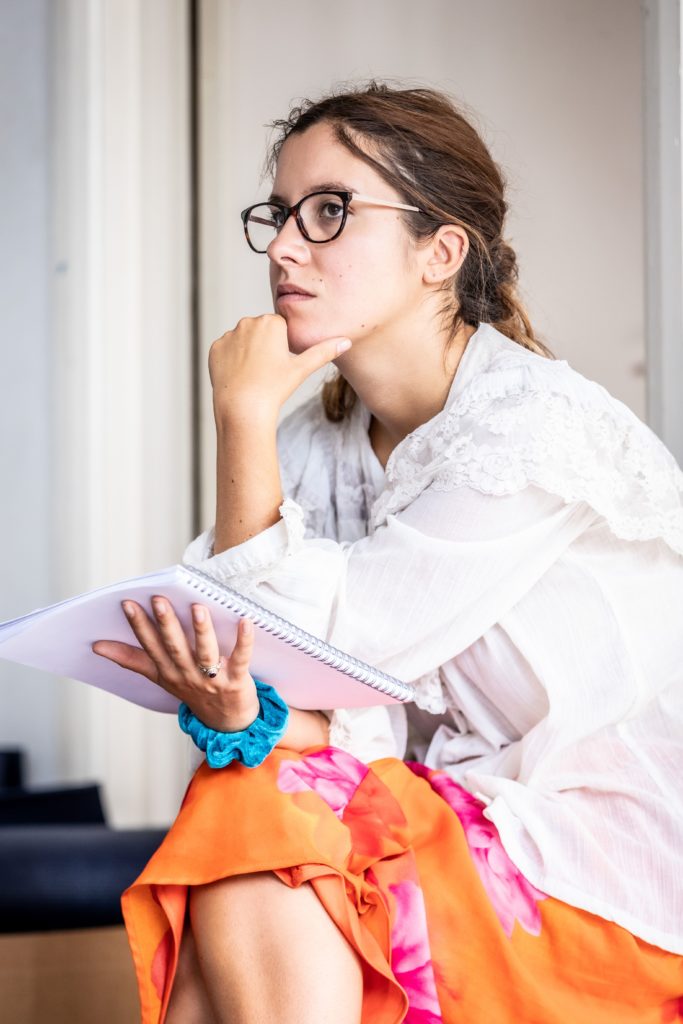
Philippa Lawford: the back story
Oxford-educated, London-based playwright and director. Directed plays on the Fringe for the past few years.
Trained as writer on John Burgess Playwriting Course and on MSt course in Writing for Performance from Cambridge University.
Worked as assistant director (Saviour, Jermyn Street Theatre) and reader (Finborough Theatre), alongside writing and directing work.
Ikaria is her first full length play.
Did you know?
IKARIA received a runner-up award in the 2022 ATG/Platform Presents Playwrights’ Prize and an OFFIE Short Run Commendation and came in at number two on Broadway World’s Best Theatre of 2022 list for its London premiere, climaxing with a November run at the Old Red Lion Theatre in November 2022.
